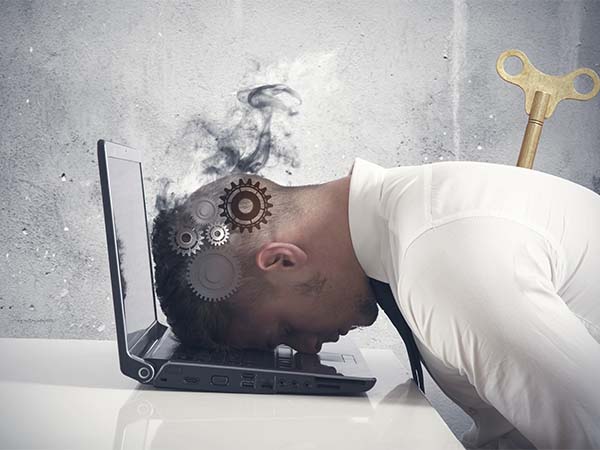
Facing mental fatigue can be a crippling experience, especially when society expects men to maintain unwavering strength and resilience at all times. Many men struggle in silence with mental exhaustion, often feeling isolated or misunderstood. In this article, we explore the unique challenges of male mental fatigue and offer proven methods to restore your energy, clarity, and emotional balance. By addressing this critical mental health issue head-on, we provide practical strategies and insights that empower you to reclaim your mental vigor—whether you’re dealing with chronic stress, work-related burnout, or everyday pressures.
Understanding Male Mental Fatigue
Male mental fatigue is a common issue that many men face but rarely talk about. The combined weight of societal expectations and the stigma around mental health forces many men to deal with exhaustion in silence. This condition is marked by persistent tiredness, difficulty concentrating, and a constant sense of mental overload that affects both personal and professional lives.
Research shows that factors such as stress, lack of sleep, and poor dietary habits play significant roles in causing mental fatigue. Many respected studies emphasize that the first step toward recovery is recognizing the symptoms. Additionally, understanding challenges unique to men, such as the pressure to remain stoic, is essential for tailoring effective solutions.
Addressing male mental fatigue requires breaking down old barriers and fostering an environment where vulnerability is seen as strength. By starting open conversations about mental health and basing our approach on empathy and evidence, we can dispel myths about fatigue. Understanding the root causes is the key to lasting solutions, and this guide is designed to help you navigate the complexities of mental exhaustion.
Causes and Contributing Factors
The causes of male mental fatigue are varied and often complex, ranging from everyday lifestyle choices to deeper psychological and societal pressures. In our fast-paced world, many men are caught between high work demands, family obligations, and social expectations, all contributing to a relentless sense of pressure.
Chronic stress is one of the primary drivers of mental fatigue. Continuous stress triggers the body’s natural stress response, leading to prolonged high levels of cortisol that over time can impair memory, concentration, and sleep. In a culture that expects men to ‘tough it out,’ it is common to delay seeking help until symptoms become overwhelming.

Another major factor is poor sleep quality. Irregular sleep patterns and an overstimulating environment prevent the brain from fully recovering. When compounded with unhealthy eating habits and a sedentary lifestyle, mental fatigue can spiral into a challenging cycle. Identifying these factors empowers you to make informed decisions about lifestyle changes that can help restore mental balance.
Work-Related Stress
For many men, the workplace is a significant source of stress. High expectations, tight deadlines, and constant performance pressures drain energy and affect both work and personal relationships.
Furthermore, the pressure to appear strong and unbreakable at work leaves little room for expressing vulnerabilities, often delaying necessary interventions until stress takes its toll.
Social and Cultural Expectations
Society often expects men to be impervious, leaving little space for showing vulnerability. This cultural conditioning can lead to internal conflicts and deepen the feelings of isolation when one experiences mental fatigue.
Traditional views can discourage seeking help for fear of being judged, making it even more crucial to challenge these expectations and embrace a more open conversation about mental health.
Proven Methods to Overcome Fatigue
Beating mental fatigue requires practical, sustainable strategies that address both the mind and body. Numerous studies and clinical guidelines support a combination of mindfulness, physical activity, proper nutrition, and strong social ties as effective methods to combat fatigue.
Mindfulness meditation is celebrated for its ability to reduce stress and clear mental fog. Even a few minutes each day can significantly help in lowering stress hormones and improving focus, as repeatedly confirmed by reputable research institutions.

Physical exercise not only boosts endorphins but also positively influences overall mood and energy levels. Whether it’s a brisk walk or a more structured workout, combining regular exercise with mindfulness creates a synergistic effect that combats mental exhaustion from multiple angles. Adopting these proven methods offers more than a temporary reprieve—it lays the foundation for long-term well-being.
Lifestyle Adjustments and Daily Habits
Modifying your daily habits and lifestyle choices can have a significant impact on managing mental fatigue. Simple adjustments like organizing your schedule, setting realistic priorities, and taking regular breaks can make a huge difference in reducing mental strain.
Regular breaks and moments of relaxation give your brain a chance to reset, helping it to process information more efficiently and manage stress better. Whether through a short walk, enjoying a book, or just practicing deep breathing, these small changes are key to sustained mental clarity.
Moreover, investing time in hobbies and activities that bring joy—whether it’s creative pursuits or spending quality time with loved ones—can greatly alleviate stress. Adapting your lifestyle by integrating these practices not only combats fatigue but also enriches your overall daily experience.
Creating a Balanced Routine
A structured routine is the backbone of good mental health. By allocating specific times for work, leisure, exercise, and social interactions, you create a balanced environment that helps mitigate stress.
Mixing activities that challenge both the mind and body, such as reading or creative arts, keeps your brain active and resilient against fatigue.
The Importance of Digital Detox
In today’s digital age, too much screen time significantly contributes to mental weariness. It is important to designate periods during your day where you disconnect from digital devices, giving your mind a rest from constant stimulation.
A regular digital detox enhances concentration and promotes better face-to-face interactions, offering a balanced approach to managing stress.
Seeking Professional Support

While self-help techniques can be very effective, there are times when professional intervention is needed to overcome severe mental fatigue. Consulting mental health professionals—whether therapists, counselors, or psychologists—can provide you with personalized strategies to manage stress and improve overall well-being.
Experts can identify underlying issues and offer a range of therapeutic techniques, such as Cognitive Behavioral Therapy (CBT) and other evidence-based treatments that have proven beneficial in reducing mental exhaustion. Working with a professional helps create a tailored treatment plan that addresses your specific situation.
It is important to break the stigma associated with seeking help. Recognizing that mental health is as important as physical health is the first step toward recovery. Seeking professional support is a proactive step to regain control and restore balance in your life. Whether through individual counseling, group therapy, or online resources, help is available and you don’t have to face this challenge alone.
Benefits of Professional Therapy
Working with a qualified therapist offers personalized guidance and coping strategies that address the root causes of mental fatigue, often leading to faster and more effective recovery.
Therapists can help you develop customized techniques and stress management habits that integrate smoothly into your daily routine.
Utilizing Online Resources and Support Groups
Along with conventional therapy, online platforms provide access to forums, webinars, and digital counseling options—ideal for those who value privacy or have limited access to in-person services.
Joining support groups, whether virtual or face-to-face, fosters a sense of community and shared experience, offering both comfort and practical advice during challenging times.
Content Additional
Beyond the strategies discussed earlier, there are additional topics and advanced techniques that further illuminate the impact of male mental fatigue. This content explores modern approaches and technological innovations that complement the methods already covered.

One promising area is neurofeedback therapy, which uses real-time monitoring of brain activity to train individuals in regulating their brain waves. Clinical trials suggest that this technique can help lessen anxiety and fatigue while boosting focus and cognitive performance. Although still emerging, reputable institutions recognize its potential when combined with mindfulness practices and consistent exercise.
Nutrition and gut health also play vital roles in mental performance. Recent studies emphasize the ‘gut-brain axis,’ illustrating how a diet rich in probiotics, omega-3 fatty acids, and antioxidants can reduce inflammation and improve brain function, potentially diminishing symptoms of fatigue.
Innovative technological solutions are becoming integral to mental health care. Mobile apps that track sleep, guide meditation sessions, or monitor stress levels offer instant feedback and personalized insights, making it easier to stay on track with your mental well-being goals. Wearable devices that detect stress signals can prompt you to take timely breaks or adjust your routine accordingly.
In conclusion, overcoming male mental fatigue is a holistic journey that goes beyond managing stress or getting enough sleep—it is about nurturing your physical, emotional, and cognitive well-being. By recognizing the symptoms and integrating proven methods such as mindfulness, regular exercise, balanced nutrition, and professional guidance, you can significantly enhance your quality of life. Remember that seeking help is a sign of strength, not weakness. Embrace these strategies, invest in your mental health daily, and move steadily toward a more balanced and fulfilling life.